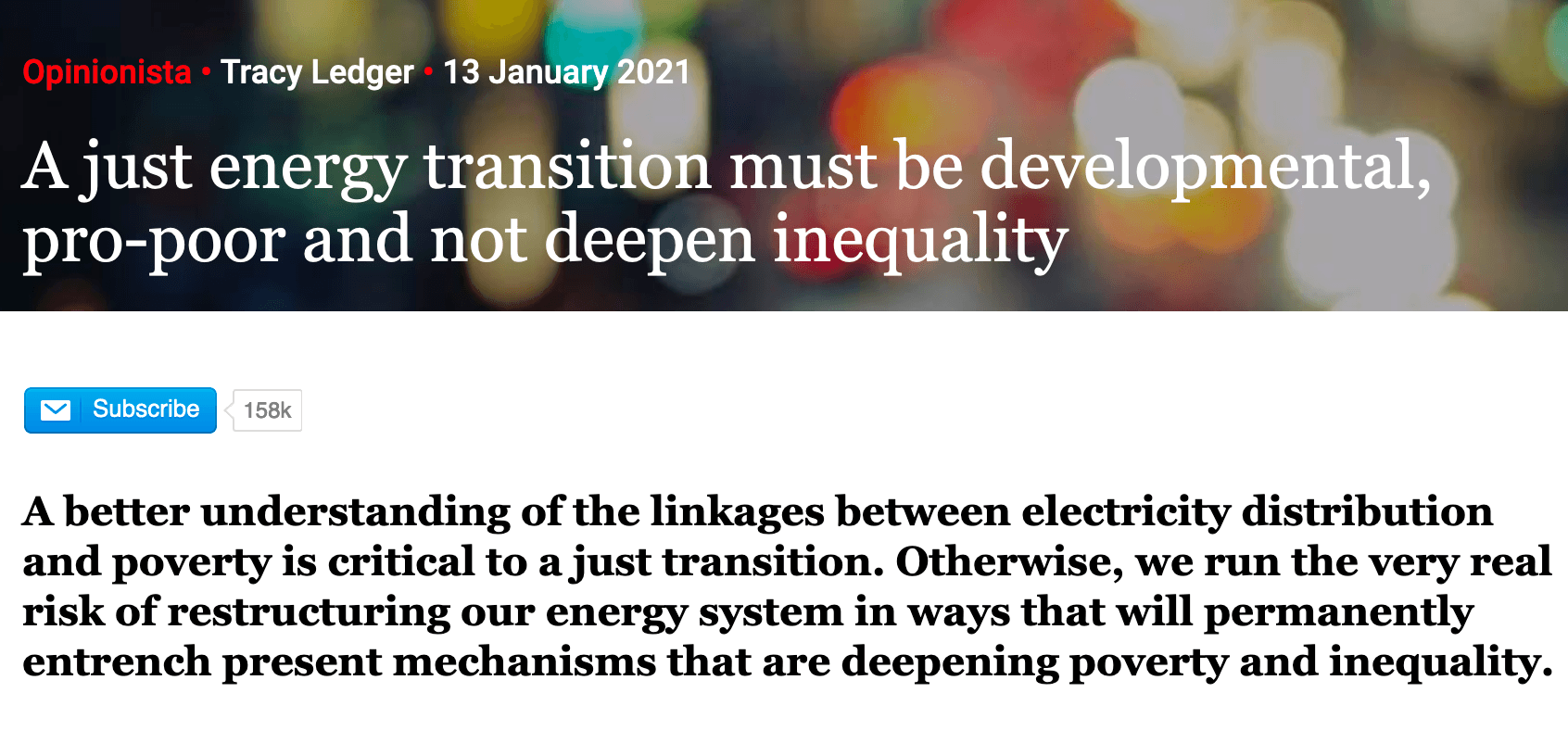by Tracy Ledger
A better understanding of the linkages between electricity distribution and poverty is critical to a just transition. Otherwise, we run the very real risk of restructuring our energy system in ways that will permanently entrench present mechanisms that are deepening poverty and inequality.
South Africa is committed to a just energy transition in terms of Chapter 5 of the National Development Plan, although the country is only at the very start of that journey. How is this transition conceptualised? It focuses on how to address the results of a shift in energy generation away from coal: how do we ameliorate the impact of job losses in the coal value chain and the impact on local economies dominated by coal?
These are important issues that need sustainable solutions. However, there are significant linkages between energy, poverty and inequality occurring in the distribution part of the energy system that have largely been overlooked. This reflects a broader emphasis on the restructuring of energy generation – rather than distribution – in discussions about how to reform our energy system.
In part, this gap in the national conversation occurs because many of the linkages between distribution, poverty and inequality have been obscured by complex governance and institutional arrangements. The Public Affairs Research Institute’s Energy and Society programme was established to undertake research into exactly this gap: the wide range of social justice issues that originate in the distribution part of the energy system and are not currently on the just transition agenda. Our first working paper, “A Just Distribution”, presents a detailed model showing how energy distribution policy decisions affect household poverty and inequality.
Why is this research important? Firstly, the dominant narrative effectively determines and sets limits to the just energy transition agenda – what is on the table for discussion and the attention of policymakers. By implication, the factors that are not currently part of this narrative are effectively not on the just transition agenda. They, therefore, do not (and will not) receive the requisite attention from either policymakers or civil society. And these overlooked factors significantly impact poverty and inequality.
Secondly, the mainstream definition of what constitutes a legitimate, just transition agenda also determines who is considered a legitimate stakeholder (and thus entitled to contribute to solution creation) and who is not. A limited agenda effectively excludes from the national debate those who actually may have a significant vested interest in the future form and operation of the energy system.
Our research findings indicate that, via a number of interconnected pathways, the current distribution system is contributing considerably to increased poverty and inequality. This is completely contrary to the intentions of both South Africa’s pro-poor transformation agenda and original policy intentions with respect to the developmental role of energy in a post-apartheid society. […]


